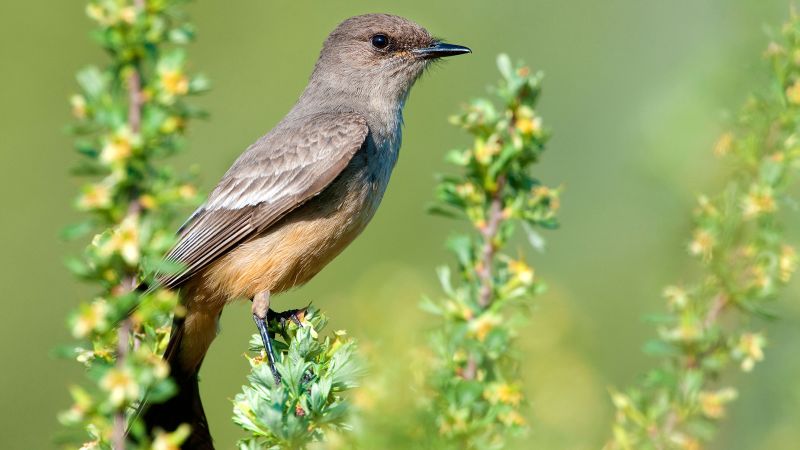After years-long discussion, birds will no longer be named after people — a decision meant to dissociate the animals from problematic eponyms.
The American Ornithological Society announced Wednesday that all common English-language names of bird species named after people will be changed, along with other monikers that have been deemed offensive. In total, approximately 70-80 birds — primarily in the US and Canada — will be renamed.
“There is power in a name, and some English bird names have associations with the past that continue to be exclusionary and harmful today,” said Colleen Handel, president of the AOS, in a statement.
Many birds sport names that come from White men with “objectively horrible pasts,” according to the group Bird Names for Birds, a grassroots initiative that has been advocating for this change. Having their names memorialized in this manner is similar to building a statue in their honor, the group argues.
The Hammond’s flycatcher, for example, is named for William Alexander Hammond, a former US surgeon general. Hammond held racist views toward both Black and Indigenous people, writing that Black people specifically were of “little elevated in mental or physical faculties above the monkey of an organ grinder.”
Judith Scarl, the executive director and CEO of AOS, said in a statement that there has long been historic bias in how birds have been named, and scientists should work to eliminate that bias.
“Exclusionary naming conventions developed in the 1800s, clouded by racism and misogyny, don’t work for us today, and the time has come for us to transform this process and redirect the focus to the birds, where it belongs,” she said.
Though efforts toward renaming birds existed before, the movement gained momentum in 2020, in the midst of large-scale cultural upheaval surrounding racist or otherwise offensive names — like those of sports teams and school buildings. That same year, Christian Cooper, a Black birdwatcher, made headlines after a White woman called the police on him — highlighting some of the prejudices Black people face in the outdoors.
In 2021, the AOS announced an ad-hoc committee to make recommendations regarding these common English names. The committee was formed in 2022 and released its guidance earlier this year. Wednesday’s move by the AOS is in response to those recommendations, and the renaming project is set to begin next year.



I wondered what was on his Wikipedia page. The page seems to be a disgrace. I hate reading pages with stuff missing so I only ctrl-f'ed through it but there didn't seem to be any mention of his racism. I did find this very strange comment in the "selected works" section...
I googled to find articles at sites like newspapers but I got nowhere. All the good results were bird-related.
Maybe we should name a parasitic worm after Hammond.
Parasitic worms are too good for him